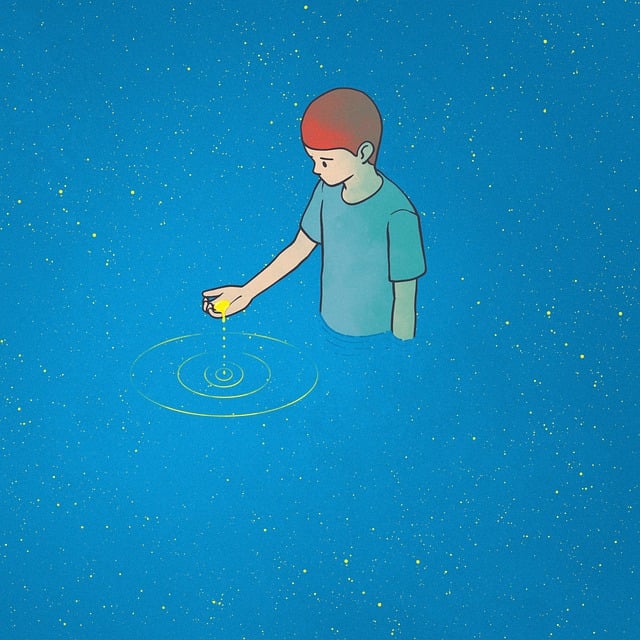Table of Contents

Introduction
To Overcome Loneliness is a pervasive and silent epidemic that touches the lives of millions of individuals across the globe. Although solitude is a natural part of the human experience, loneliness extends far beyond the occasional feeling of being alone. It is a profound and often distressing sensation of disconnection that can affect individuals of any age, from a college student navigating their newfound independence to seniors who may find themselves living in isolation. Despite being in the midst of a bustling social environment or engaging in various social activities, a significant number of people continue to report feeling isolated.
The impact of loneliness is multifaceted and can lead to severe repercussions for both mental and physical well-being. Mental health disorders such as depression and anxiety are frequently associated with chronic loneliness, as are physical health issues such as cardiovascular disease and a compromised immune system. Furthermore, loneliness can perpetuate itself, as the pain of isolation often drives individuals to withdraw even further, making it increasingly difficult to escape the cycle of solitude.
However, it is essential to recognize that loneliness is not an immutable condition. It is a transient state of mind, one that can be effectively managed and ultimately overcome with the implementation of the right strategies. This blog post is designed to serve as a comprehensive guide to transforming loneliness into a catalyst for personal growth, self-discovery, and enduring happiness. Within these digital pages, we shall explore ten life-affirming practices that are not only instrumental in alleviating loneliness but also have the potential to foster a profound sense of fulfillment and joy in your life.
- Embrace Gratitude: Illuminating the Path to Contentment
The practice of gratitude is a profoundly effective means of combating loneliness. When feelings of solitude set in, it is easy for the mind to dwell on the aspects of life that are lacking—be it companionship, emotional support, or a clear sense of purpose. Gratitude, however, empowers you to shift your focus toward the positive elements in your life, prompting you to appreciate the simple, everyday miracles that are so often overlooked.
The Science of Gratitude
Gratitude is a psychological tool that has been validated by numerous scientific studies. The act of focusing on and expressing appreciation for the positive aspects of one’s life has been shown to rewire the brain, promoting a more optimistic outlook. Gratitude has been linked to an increase in the production of dopamine and serotonin, neurotransmitters that play a crucial role in regulating mood and emotional well-being. These “feel-good” chemicals can serve as a natural antidote to the despair that loneliness can engender. Moreover, practicing gratitude is associated with a reduction in cortisol levels, a hormone that contributes to stress and anxiety.
Incorporating Gratitude into Your Daily Routine
To reap the benefits of gratitude, consider the following practices:
- Gratitude Journaling: Dedicate a few moments each day to jot down three things that you are grateful for. These entries can range from the mundane, such as the comfort of a warm beverage on a cold morning, to the profound, such as the enduring love of a cherished companion. The act of documenting these blessings serves as a tangible reminder of the positive forces in your life.
- Expressing Thanks: Take the time to communicate your appreciation to the people who have made a positive impact on your life. This can be achieved through heartfelt letters, emails, or simply by expressing your thanks in person. Such gestures not only reinforce your own sense of connection but also strengthen the bonds you share with others.
- Gratitude Meditation: Begin or end your day with a short period of meditation focused on the things for which you are grateful. Visualize these moments or entities in your mind’s eye, allowing the warmth of gratitude to fill your heart.
- Explore Mindfulness and Meditation: Finding Solace in the Present Moment
Loneliness can be a powerful force that pulls you into a vortex of negative thought patterns—rehashing past hurts or fretting over an uncertain future. Mindfulness practices serve as a gentle yet effective antidote by helping you to anchor your awareness in the present moment. It is about observing your thoughts and emotions without succumbing to judgment, fostering a sense of serenity and acceptance.


The Science Behind Mindfulness
Research has demonstrated that mindfulness can significantly reduce symptoms of depression and anxiety, which are often the unwelcome companions of loneliness. By quieting the mind and reducing its tendency to ruminate on negative experiences, mindfulness allows you to process emotions in a healthier manner and diminishes feelings of isolation.
Mindfulness Practices to Try
- Deep Breathing Exercises: Find a comfortable seated position and focus on your breath. Inhale deeply through your nose for a count of four, hold the breath for four seconds, and exhale slowly through your mouth for a count of six. This cycle can be repeated to create a calming rhythm that soothes the mind and body.
- Body Scans: Close your eyes and mentally traverse your body from your head to your toes. Pay attention to any areas of tension or discomfort, and consciously relax each muscle group as you progress.
- Mindful Walking: Engage in a slow, deliberate stroll, paying close attention to the sensations of the environment around you—the sound of the breeze rustling through the trees, the warmth of the sun on your skin, or the smell of freshly cut grass. This practice can not only alleviate loneliness but also enhance your connection with the natural world.
If you are new to the realm of meditation, consider utilizing mobile applications such as Calm, Insight Timer, or Headspace. These platforms offer a plethora of guided meditations tailored to address specific issues, including loneliness, anxiety, and the cultivation of self-compassion.
- Nurture Significant Relationships: The Importance of Quality Over Quantity
While it is true that human beings are social creatures with a fundamental need for companionship, the depth of our connections often proves more critical than the breadth. Loneliness may convince us that we are unlovable or forgotten, but the truth is that often, what we require are genuine, emotionally rich interactions rather than a vast network of superficial acquaintances.
The Strength of Meaningful Connections
Research indicates that a small number of profound relationships can significantly bolster mental health and reduce feelings of isolation. These connections provide a foundation of emotional support, shared experiences, and a sense of belonging that can be invaluable in the face of life’s challenges.
Strategies for Fostering Relationships
- Join a Community Group: Engaging in activities centered around a shared interest is an excellent way to forge bonds with like-minded individuals. Whether it is a book club, a sports team, or a charitable organization, these groups provide a natural setting for creating meaningful connections.
- Rekindle Old Friendships: Sometimes, the comfort of familiarity can be incredibly healing. Reach out to old friends with whom you have lost touch. A simple message or phone call can reestablish a cherished connection and provide a much-needed boost to your social well-being.
- Embrace Vulnerability: To build genuine relationships, it is essential to be open and authentic. Share your thoughts and feelings with those you trust, and encourage them to do the same. This creates an environment where deep connections can flourish.
If social anxiety or fear of rejection is hindering your ability to connect with others, remember that progress often begins with small steps. Treat yourself with kindness, and gradually expand your social boundaries.
- Discover a New Hobby or Reconnect with an Old Passion: The Joy of Creativity and Purpose
Immersing yourself in a hobby or pursuing a long-held passion is one of the most fulfilling ways to combat loneliness. Engaging in activities that bring you joy not only provides a sense of purpose but also opens the door to new social opportunities with individuals who share your interests.
The Science of Fulfillment
Participating in hobbies has been shown to activate the brain’s reward system, releasing dopamine, which contributes to feelings of contentment and accomplishment. Additionally, hobbies can lead to a state of flow, where you become so absorbed in an activity that you temporarily forget about your worries and negative emotions.


Suggestions for Hobbies to Consider
- Creative Pursuits: Delve into the therapeutic realm of art by trying your hand at painting, writing, or learning to play a musical instrument. These creative outlets can be incredibly cathartic and provide a much-needed escape from the stresses of daily life.
- Physical Activities: Engage in activities that promote both mental and physical health, such as yoga, hiking, or dance classes. The endorphins released during exercise are known to improve mood and can serve as a natural antidepressant.
- Skill Development: Challenge yourself by learning something new, such as a language, gardening, or cooking. Not only will you acquire a new skill, but you may also find yourself surrounded by others eager to share their knowledge and experiences.
- Cultivate Self-Compassion: Treating Yourself with Love and Understanding
During moments of loneliness, it is common for the inner critic to emerge, bombarding us with negative self-talk and harsh judgments. Self-compassion involves treating yourself with the same empathy and kindness you would extend to a dear friend.
The Science of Self-Compassion
Dr. Kristin Neff, a pioneer in the study of self-compassion, posits that it is comprised of three key elements: self-kindness, mindfulness, and a recognition of shared human experiences. These components work in harmony to help you accept and embrace your struggles without succumbing to the harsh grip of self-criticism.
Practicing Self-Compassion
- Daily Affirmations: Begin or end each day with positive self-affirmations. Repeat phrases such as “I am enough” or “I am deserving of love and connection” to reinforce your self-worth.
- Self-Care Rituals: Prioritize activities that nurture your body, mind, and soul. This might include a soothing bath, curling up with a favorite book, or ensuring that you get the restorative sleep you require.
- Challenge Negative Thought Patterns: When negative thoughts arise, practice self-compassion by questioning their validity. Ask yourself if you would speak to a friend in the same way and replace critical self-talk with supportive, loving statements.
The journey from loneliness to happiness is not a linear one, but rather a tapestry of intentional actions woven together by self-awareness, resilience, and a willingness to embrace change. Through the exploration of the practices mentioned here and the additional strategies that follow, you possess the power to redefine your relationship with loneliness and create a life imbued with joy, connection, and purpose.


Conclusion
Loneliness does not have to be an insurmountable obstacle; it is a transient state that can be transformed through the implementation of thoughtful strategies and a commitment to personal growth. By embracing the practices outlined in this blog, you can learn to conquer loneliness and embrace a life filled with happiness, connection, and meaning.
Happiness is not the absence of challenges but rather the ability to find joy, belonging, and significance amidst the inevitable trials of life. The path to a fulfilling existence lies within your grasp, and the transformation begins with the recognition that the power to create change resides within you. As you explore these practices, remember that loneliness is a universal experience, and by reaching out to others, both internally and externally, you are contributing to the collective tapestry of human connection.
Overcome Loneliness Overcome Loneliness Overcome Loneliness Overcome Loneliness Overcome Loneliness Overcome Loneliness Overcome Loneliness Overcome Loneliness Overcome Loneliness Overcome Loneliness Overcome Loneliness Overcome Loneliness Overcome Loneliness Overcome Loneliness Overcome Loneliness Overcome Loneliness Overcome Loneliness Overcome Loneliness Overcome Loneliness Overcome Loneliness Overcome Loneliness Overcome Loneliness Overcome Loneliness Overcome Loneliness Overcome Loneliness